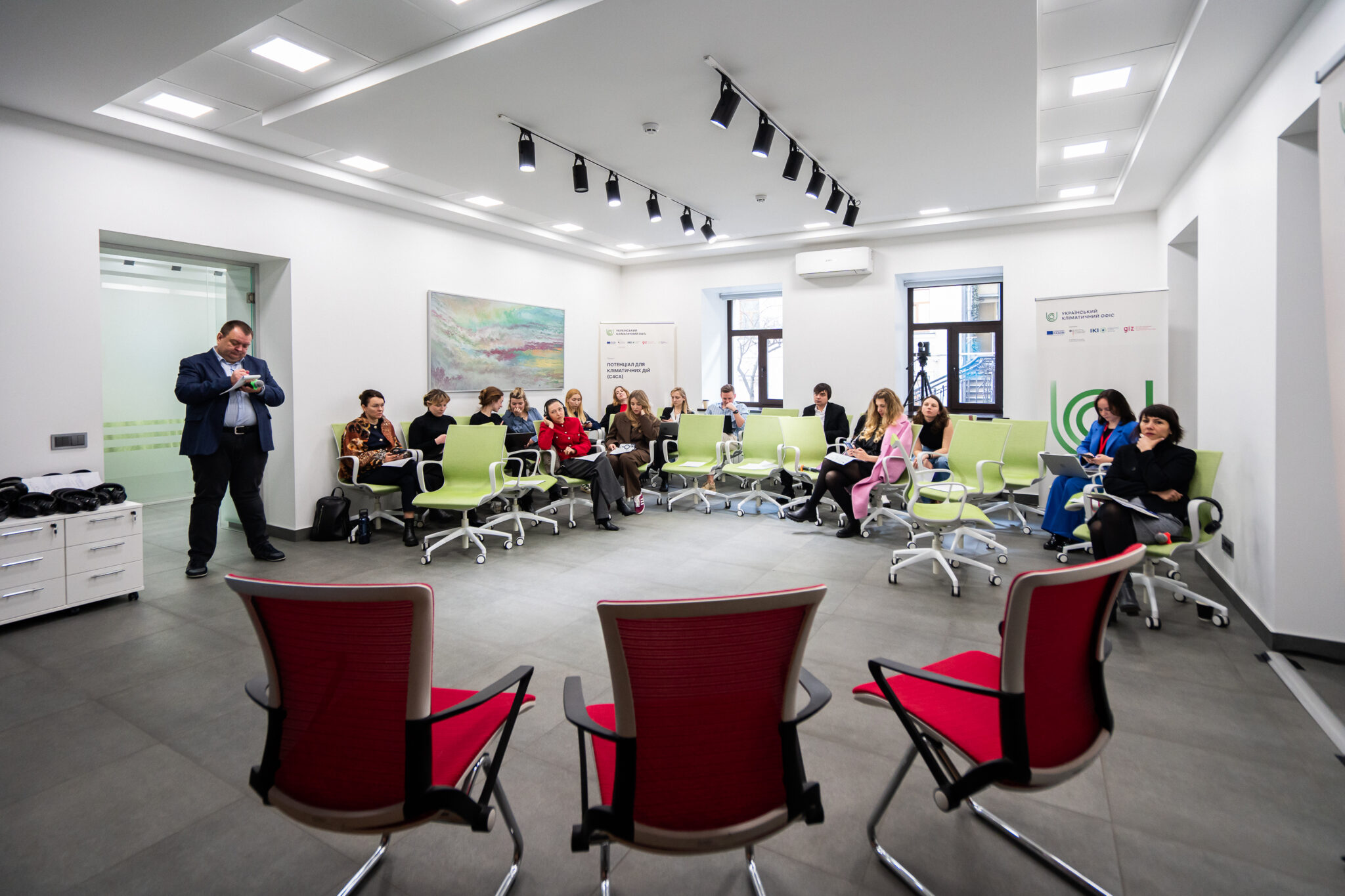“Do not let anyone define what a women-job is and what not”: Insights form the event on the Role of Women in Renewable Energy and Decarbonization During War Time

What will be the role of women in decarbonisation in Ukraine? This question was the focus of the discussion “The Role of Women in Renewable Energy and Decarbonization During War Time”.
The event on the Role of Women in Renewable Energy and Decarbonization During War Time, held at the Ukrainian Climate Office premises on March, 26, 2025, focused on the impact of the war on the employment landscape for women in Ukraine’s energy sector. Held both in person and online, the event brought together experts, industry professionals, and inspiring speakers to discuss how the war has reshaped the employment landscape for women in Ukraine’s energy sector. The event also explored pathways to promote gender equality and empower women in this crucial field.
Founder of Timak, Arjeta Puca, got the heart of the matter and presenter of one of the inspiring stories: “Do not let anyone define what a woman’s job is.” Her words summarized the essence of the day, which was filled with insights, reflections, and motivation.
The event was broadly divided into three main parts:
- A zoom in session, where selected researcher presented their latest findings. Here the presenters pointed out that the war did change the employment landscape for women, for example on a municipal level women are already in leadership positions in the energy efficiency sphere, often due to men being mobilized. Employment data also suggest that there is a big potential, and actual economic need in order to reach carbon neutrality, for women to be retrained in the field of energy with relatively little time required.
- A section where three women from within the industry have shared their personal stories. It was very inspiring to hear, how they managed to have very successful careers, even though they had to overcome obstacles, that can be attributed to gender inequality, for being overlooked for promotions, not being taking seriously when talking about technical topics or having issues accessing seed capital for founding a business. Nevertheless, the women found ways to cope with these issues, by either being persistent or switching companies. Their stories give hope that the industry can become more gender balanced. Are you a Ukrainian women working in the field of energy yourself? Then you can become a member of the women energy club. More information can be found here.
- The final segment of the event was an interactive World Café exercise, where participants discussed four key questions:
- What are the invisible, cultural barriers in Ukraine and how can we overcome them?
- If we want to promote women or to attract women in these sectors, what kind of strategic partnerships can we have and what kind of alley could you think of?
- How has the war changed the role of women in daily life, and what positive changes should be preserved post-war?
- What are the main obstacles to female leadership in the energy and decarbonization sectors, and how can we promote leadership for women?
The key take away was, that women in the Ukraine are oftentimes still faced with outdated gender stereotypes, which are often even enforced by public institutions, such as schools. To dismantle these deep-rooted gender roles, education about the topic, but also partnerships with schools, businesses, the church and the government would be beneficial.
Looking forward: Whilst the event was of course not able to finalize the question regarding the role of women in renewable energy and during decarbonization during and after war time, it addressed though-provoking discussions that invite reflection and opened the floor for further discussions. The enthusiasm and determination of the participants left no doubt that change is possible — and that women have a vital role to play in building a sustainable and resilient future.
Round table was jointly organized by the projects Renewables for Resilient Ukraine, C4CA/Ukrainian Climate Office, Promotion of Energy Efficiency and Implementation of the EU Energy Efficiency Directive in Ukraine, Financing Energy for Low-carbon Investment Cities Advisory Facility II (FELICITY II) Eastern Partnership and Central Asia Program and H2-diplo, which are implemented by GIZ Ukraine on behalf of the German Government.